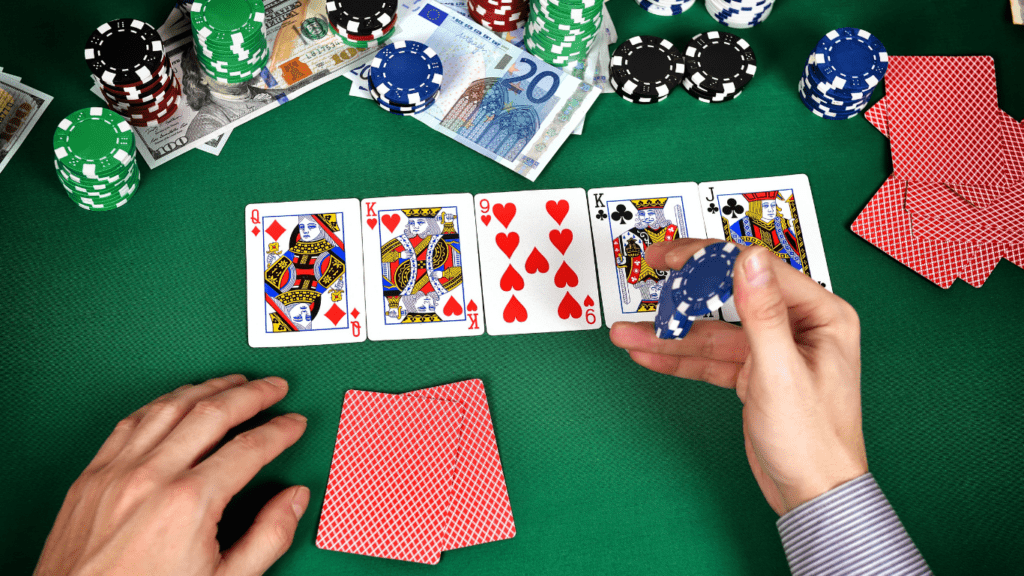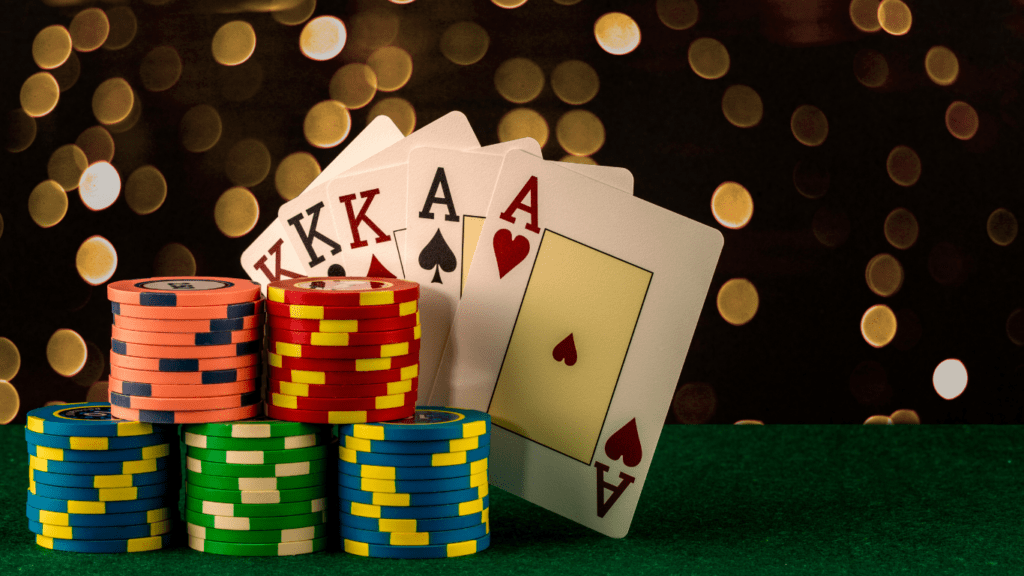Understanding Gambling Addiction
Gambling addiction, or gambling disorder, is a psychological condition recognized by the APA (American Psychiatric Association). It involves an uncontrollable urge to keep gambling despite harmful consequences. Classified as a behavioral addiction, it mirrors substance addictions in its impact on the brain’s reward system.
Three core traits define gambling addiction: an inability to stop gambling, continued gambling despite losses, and prioritizing gambling over essential responsibilities. People often chase losses or wager increasing amounts, seeking the euphoria of earlier wins.
Physiological effects include dopamine release, which reinforces the cycle of gambling. Over time, the brain demands higher stakes or more frequent gambling to achieve the same satisfaction. Emotional symptoms, such as anxiety or irritability when attempting to reduce gambling, frequently accompany this addiction.
Signs Of Gambling Addiction
Identifying gambling addiction involves observing patterns in:
- behavior
- emotions
- financial habits
Recognizing these signs early aids in addressing the problem effectively.
Behavioral Indicators
Frequent gambling-related activities dominate the schedule, while responsibilities are neglected. Examples include skipping work, avoiding family obligations, or lying about gambling habits. Constant preoccupation with gambling, such as planning the next session or reliving past wins, is common. Stealing or borrowing money to gamble also signals an urgent problem.
Emotional Symptoms
Emotional distress often follows gambling losses or interruptions. Feelings of guilt, shame, or regret arise after gambling sessions. Irritability, anxiety, or depression surfaces when unable to gamble. People may also use gambling to escape personal issues or negative emotions.
Financial Red Flags
Unexplained financial problems reveal hidden gambling losses. Borrowing money frequently, maxing out credit cards, or liquidating assets point to gambling addiction. Neglecting essential expenses, like bills or groceries, to fund gambling activities reflects financial mismanagement linked to addiction.
Risks Associated With Gambling Addiction

Gambling addiction exposes individuals to significant personal and societal risks. Understanding these risks helps outline the serious consequences of unchecked gambling behavior.
Health Risks
- Gambling addiction impacts both mental and physical health.
- Stress, anxiety, and depression are common, often leading to sleep disorders or worsening existing mental health issues.
- Physiological effects like high blood pressure, headaches, and fatigue frequently arise from prolonged stress linked to gambling.
- Individuals may resort to substance abuse as a coping mechanism, increasing the danger of long-term health problems.
- The National Center for Responsible Gaming highlights the close connection between gambling addiction and substance use disorders, making dual treatment essential in some cases.
Social Consequences
Addiction strains relationships and disrupts social connections. Emotional withdrawal, dishonesty, and neglect of responsibilities often isolate individuals from family and friends. A report by the National Council on Problem Gambling shows that about 25%-50% of people with gambling addiction experience relationship breakdowns.
Legal issues may emerge due to actions like theft or fraud to fund gambling, further damaging social ties. Communities may also suffer as gambling-related crimes and conflicts increase.
Financial Impact
Uncontrolled gambling leads to significant monetary losses. Persistent gambling despite losing money often results in debt accumulation, unpaid bills, and jeopardizing essential assets like homes or savings. According to the Center for Gambling Studies, financial difficulties are among the most visible impacts of addiction.
Job performance declines due to gambling-related distractions, increasing the likelihood of unemployment. Lost income exacerbates financial strain and amplifies the overall risk profile of gambling addiction.
How To Get Help For Gambling Addiction
Overcoming gambling addiction starts with acknowledging the problem and understanding available solutions. A combination of self-help, professional treatment, and community support offers the best chance of recovery.
Self-Help Strategies
Identifying gambling triggers and avoiding them reduces the temptation to gamble. For instance, staying away from casinos, uninstalling gambling apps, and blocking betting websites are effective steps.
Time management activities, like engaging in hobbies or exercise, helps replace gambling with healthy habits. Keeping a journal to document thoughts and emotions can offer insights into addictive patterns. Setting a strict budget and delegating financial control to a trusted person additionally limits accessibility to funds for gambling.
Professional Treatment Options
Therapists specializing in addiction provide cognitive-behavioral therapy (CBT) to address underlying triggers and retrain thought patterns. Several clinics and helplines, such as the National Problem Gambling Helpline (1-800-522-4700), connect individuals with tailored support.
Medical interventions, including medication for anxiety or depression, may aid recovery when prescribed by qualified professionals. Dual-diagnosis therapy is available for those dealing with gambling addiction alongside mental health or substance abuse issues.
Support Groups And Resources
Peer-led groups, like Gamblers Anonymous (GA), offer confidential spaces for sharing experiences and learning from others in similar situations. Meetings are held both in person and online to cater to different preferences.
Digital resources, including gambling addiction apps and online forums, provide additional support tools and round-the-clock guidance. Nonprofit organizations, such as the National Center for Responsible Gambling, supply educational materials and assistance programs to aid recovery efforts.



 Dallaseth Evansquire serves as the Chief Content Strategist at Gamble Time Hub, where they lead the vision and direction of all editorial content. With a deep-rooted passion for the gambling industry, Dallaseth curates and oversees high-quality articles that span gambling news, sports betting analysis, and high-stakes player stories. Their expertise ensures that the platform remains both informative and engaging, while also emphasizing the importance of responsible gambling practices. Dallaseth’s creative direction plays a key role in shaping the voice and credibility of Gamble Time Hub.
Dallaseth Evansquire serves as the Chief Content Strategist at Gamble Time Hub, where they lead the vision and direction of all editorial content. With a deep-rooted passion for the gambling industry, Dallaseth curates and oversees high-quality articles that span gambling news, sports betting analysis, and high-stakes player stories. Their expertise ensures that the platform remains both informative and engaging, while also emphasizing the importance of responsible gambling practices. Dallaseth’s creative direction plays a key role in shaping the voice and credibility of Gamble Time Hub.

